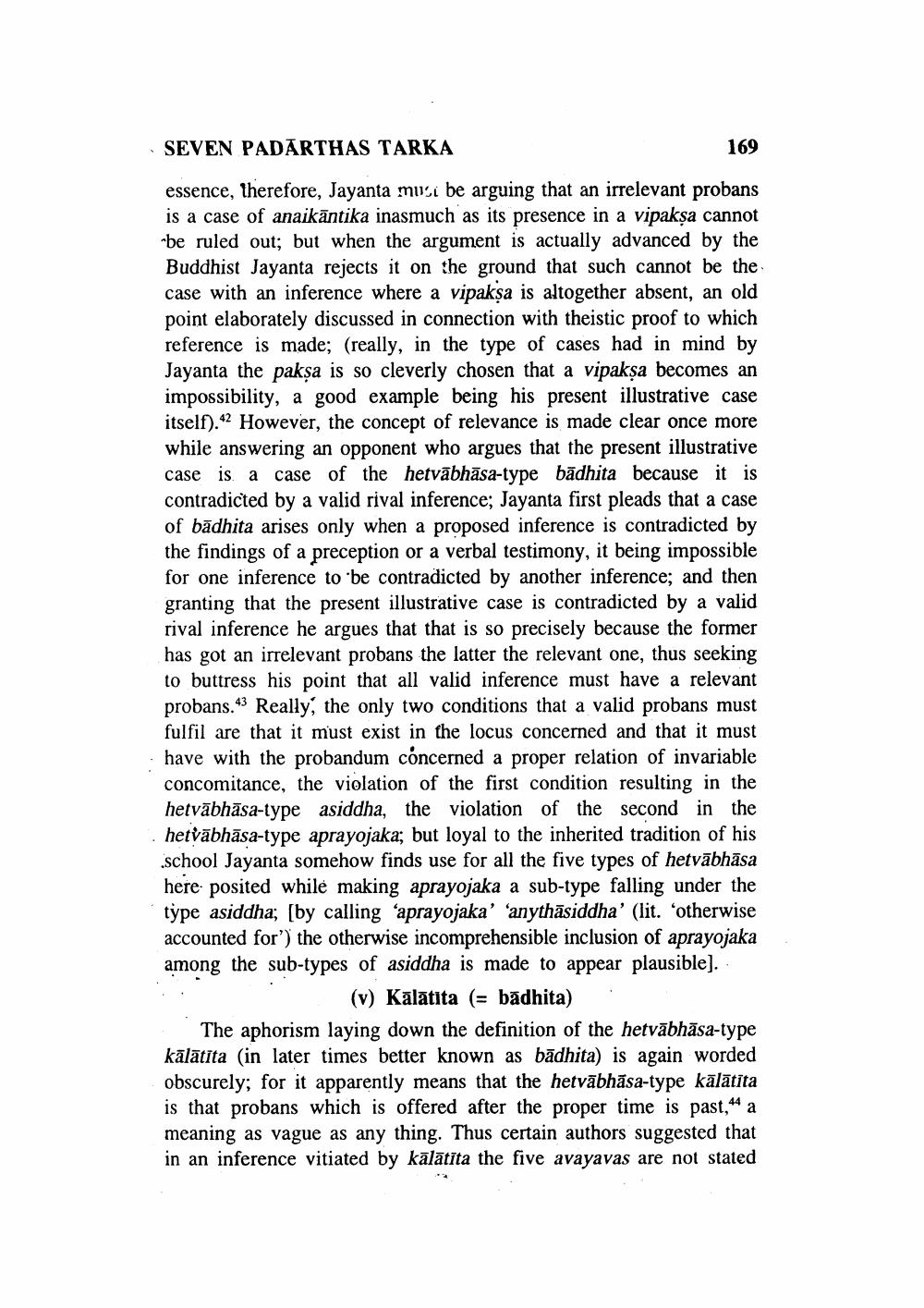________________
SEVEN PADARTHAS TARKA
essence, therefore, Jayanta mus be arguing that an irrelevant probans is a case of anaikantika inasmuch as its presence in a vipakṣa cannot be ruled out; but when the argument is actually advanced by the Buddhist Jayanta rejects it on the ground that such cannot be the case with an inference where a vipakṣa is altogether absent, an old point elaborately discussed in connection with theistic proof to which reference is made; (really, in the type of cases had in mind by Jayanta the paksa is so cleverly chosen that a vipaksa becomes an impossibility, a good example being his present illustrative case itself). However, the concept of relevance is made clear once more while answering an opponent who argues that the present illustrative case is a case of the hetvabhasa-type badhita because it is contradicted by a valid rival inference; Jayanta first pleads that a case of badhita arises only when a proposed inference is contradicted by the findings of a preception or a verbal testimony, it being impossible for one inference to be contradicted by another inference; and then granting that the present illustrative case is contradicted by a valid. rival inference he argues that that is so precisely because the former has got an irrelevant probans the latter the relevant one, thus seeking to buttress his point that all valid inference must have a relevant probans.43 Really, the only two conditions that a valid probans must fulfil are that it must exist in the locus concerned and that it must have with the probandum concerned a proper relation of invariable concomitance, the violation of the first condition resulting in the hetväbhāsa-type asiddha, the violation of the second in the hetväbhasa-type aprayojaka, but loyal to the inherited tradition of his school Jayanta somehow finds use for all the five types of hetväbhäsa here posited while making aprayojaka a sub-type falling under the type asiddha, [by calling 'aprayojaka' 'anythäsiddha' (lit. 'otherwise accounted for') the otherwise incomprehensible inclusion of aprayojaka among the sub-types of asiddha is made to appear plausible].
(v) Kalatita (= badhita)
The aphorism laying down the definition of the hetvābhāsa-type kālātīta (in later times better known as badhita) is again worded obscurely; for it apparently means that the hetväbhäsa-type kälätita is that probans which is offered after the proper time is past," a meaning as vague as any thing. Thus certain authors suggested that in an inference vitiated by kälätita the five avayavas are not stated
169




